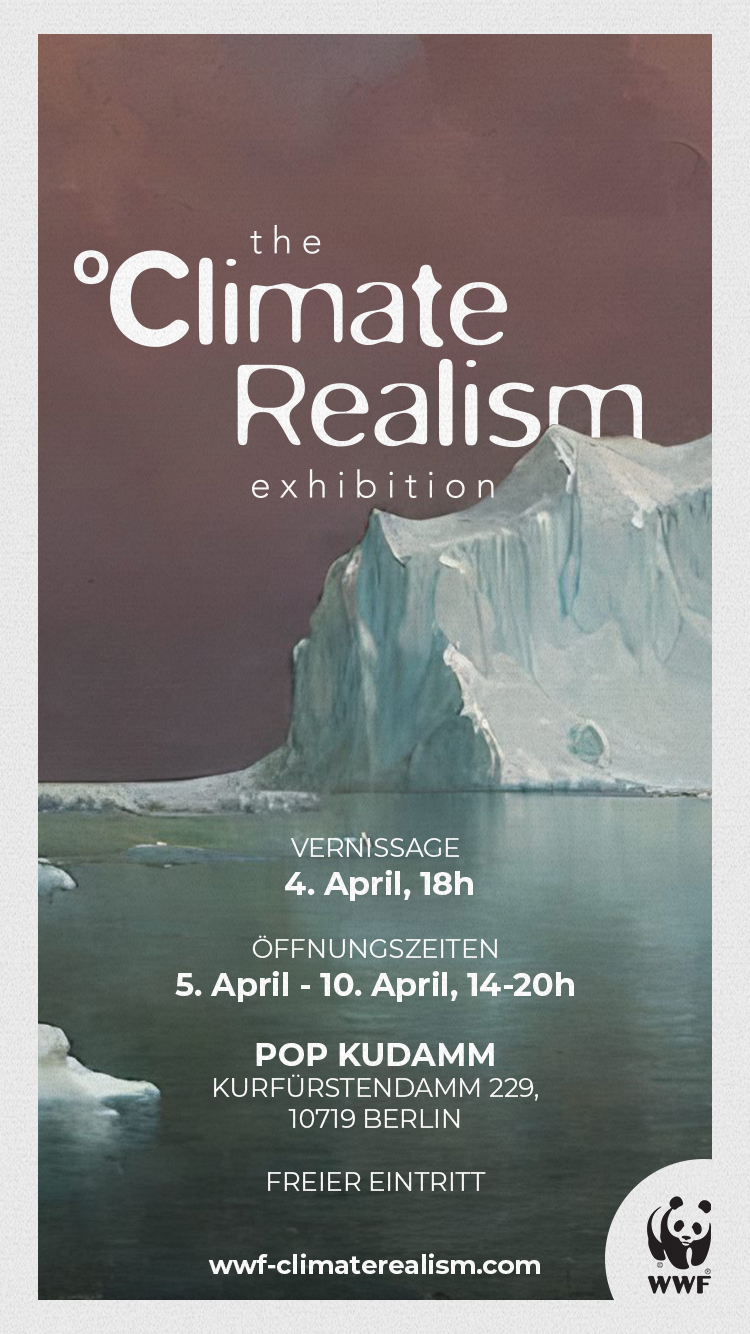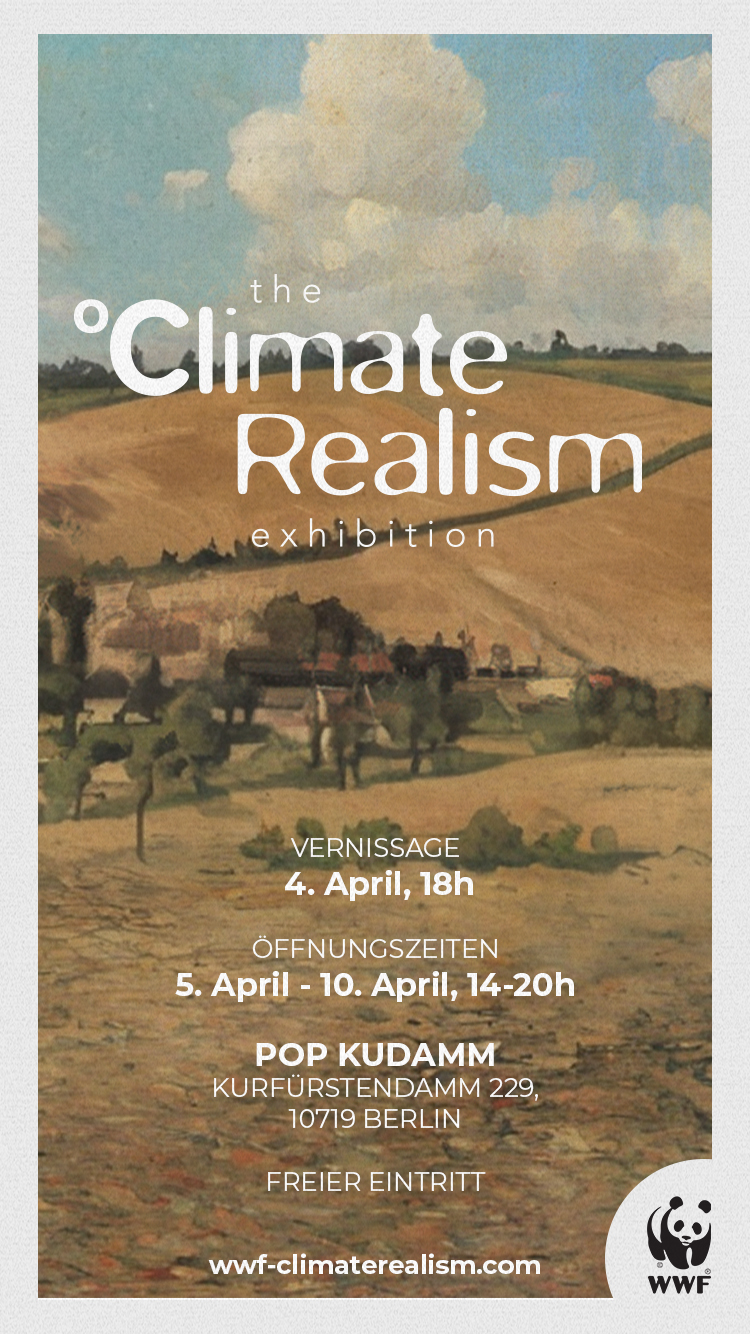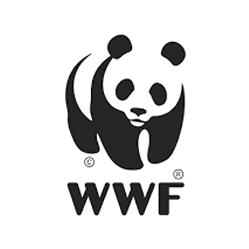
![]()
WWF• ClimateRealism Exhibition
Using AI to bring climate date to life - through the eyes of famous painters
The WWF Climate Realism Exhibition combines latest local data from climate research with custom-built AI pipelines to send famous landscape paintings from art history into their possible climate futures. In nearly 2000 AI-generated individual images, the future effects of climate change are modeled for the paintings place of origin and interpreted in the style of the artists.
The result: A collaboration between art, technology and science – and a new way of looking at climate scenarios. With its web experience, a physical exhibition and digital assets, the WWF Climate Realism Exhibition achieved a new kind of attention, deeper discussions and increased urge to act.
The WWF Climate Realism Exhibition combines latest local data from climate research with custom-built AI pipelines to send famous landscape paintings from art history into their possible climate futures. In nearly 2000 AI-generated individual images, the future effects of climate change are modeled for the paintings place of origin and interpreted in the style of the artists.
The result: A collaboration between art, technology and science – and a new way of looking at climate scenarios. With its web experience, a physical exhibition and digital assets, the WWF Climate Realism Exhibition achieved a new kind of attention, deeper discussions and increased urge to act.

Check the digital exhibition
︎

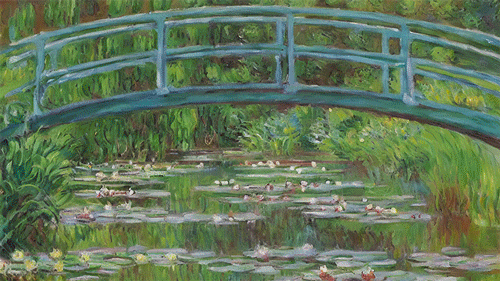 Claude Monet, The Japanese Bridge, 1889
Claude Monet, The Japanese Bridge, 1889
Camille Pissarro, Landscape at Les Pâtis, Pintoise, 1868

Tina Blau, Scene of Franeker, 1908
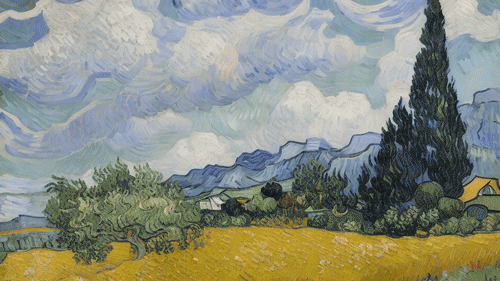 Vincent Van Gogh,
Wheat Field with Cypresses, 1889
Vincent Van Gogh,
Wheat Field with Cypresses, 1889
Paul Gauguin, Tahitian Landscape, 1891
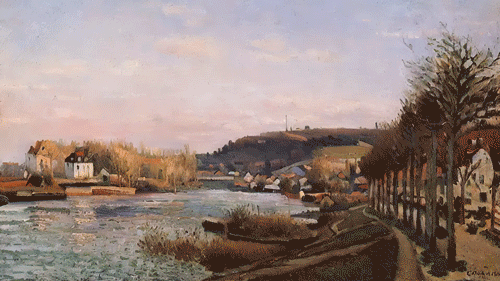
Camille Pissarro, The Seine at Bougival, 1870

